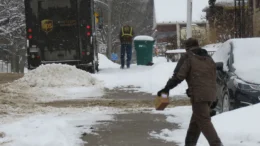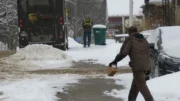The second motion for a preliminary injunction brought by plaintiffs in their lawsuit against the state to stave off the closure of both Polk and White Haven state centers was denied Thursday by a magistrate judge for the Middle District of Pennsylvania.
“The journey for the plaintiffs has been long and laden with significant legal obstacles as they are sought unprecedented and sweeping relief, the ability to dictate the location where the state provides their family members with intensive care services… we are constrained to conclude that this motion, like the plaintiffs’ earlier motion for preliminary injunction, does not meet the exacting standards necessary for injunctive relief,” Judge Martin C. Carlson wrote in his memorandum opinion denying the request for preliminary injunction.
Carlson also wrote that “in order to make a more fully informed decision concerning whether this case is still a viable class action and how best to address the remaining claims in this lawsuit” the court needs to know by Feb. 3 if any of the plaintiffs wish to withdraw from the suit.
The order also instructs class members who wish to join the class action suit that they must return the opt-in forms to the plaintiff’s attorney who must file them with the court no later than Feb. 17.
Carlson, in his order granting class action lawsuit status to the Polk Center case in November, defined the class as all current and future residents of both centers who are not on the “Planning List” and who do not want to be placed in a “community” setting or in another intermediate care facility because they believe their current placement at either Polk or White Haven is the “least restrictive” environment available “that can meet all their needs.”
In his memorandum of granting class-action status in November, Carlson wrote that Kevin Dressler, director of the Bureau of State Operated Facilities for the Office of Developmental Programs, testified 77 individuals had been identified as members of this class.






























